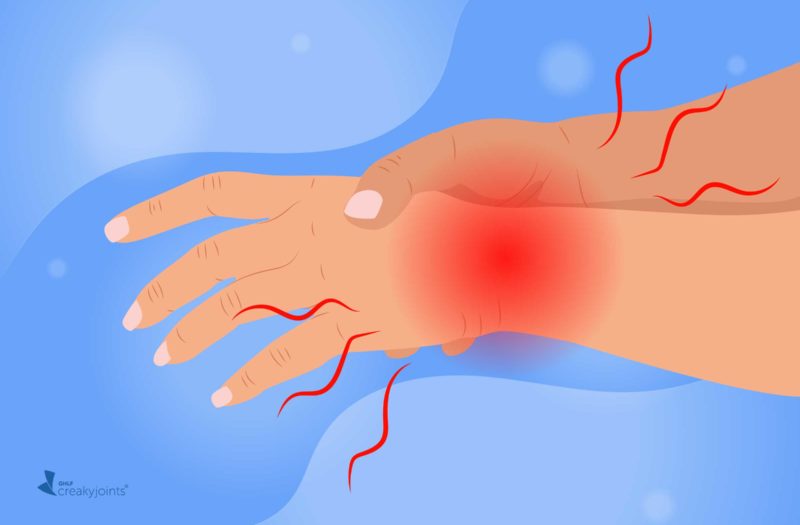Getting correctly diagnosed with rheumatoid arthritis (RA) so you can start treatment as quickly as possible is the best way to prevent the condition from worsening. The catch is that early RA symptoms, like joint stiffness, are sometimes dismissed or attributed to simply getting older. Are there other clues that RA is on the horizon that primary care doctors ought to be paying attention to?
Researchers from the Netherlands think so. They conducted an analysis of electronic health records in a database that contains info on more than 1.5 million patients. By focusing in on diagnostic codes and prescriptions between 2006 and 2016, they were able to learn about some surprising factors that occurred more often in people who were later diagnosed with RA.
As expected, the study — which was published in RMD Open: Rheumatic and Musculoskeletal Diseases — found that many RA patients had visited their primary care doctor with musculoskeletal complaints about their hand/finger, shoulder, or knees within four to six years (and especially the 18 months) prior to their RA diagnosis.
But many also presented with issues that might not seem clearly related to RA: Carpal tunnel syndrome was more common among those who later developed RA, as were infections of the urinary tract and genitals.
Inflammation of the mucous membranes in the gums, lung, or gut also occurred more often in people who were later diagnosed with RA. Some were diagnosed with psoriasis, inflammatory bowel disease (Crohn’s disease or ulcerative colitis), or gout in the period leading up to their RA diagnosis. (These weren’t usually misdiagnoses but rather co-existing conditions.)
Although more research is needed, the authors suggested that being aware of these findings might help primary care providers consider the possibility of rheumatoid arthritis sooner. The authors noted that, in particular, people who see their doctor with new musculoskeletal symptoms such as shoulder pain, chronic knee pain, or carpal tunnel syndrome seem to be more apt to develop inflammatory arthritis within the following 1.5 years.
“Consequently, they can consider referring these patients [to a rheumatologist], which may facilitate early diagnosis and treatment,” they wrote.
Not Sure What’s Causing Your Pain?
Check out PainSpot, our pain locator tool. Answer a few simple questions about what hurts and discover possible conditions that could be causing it. Start your PainSpot quiz.






